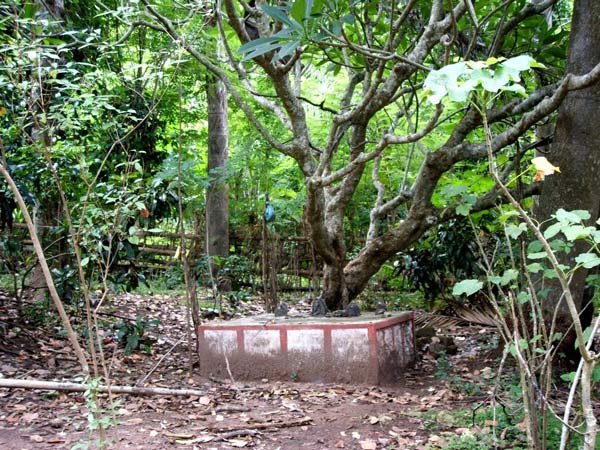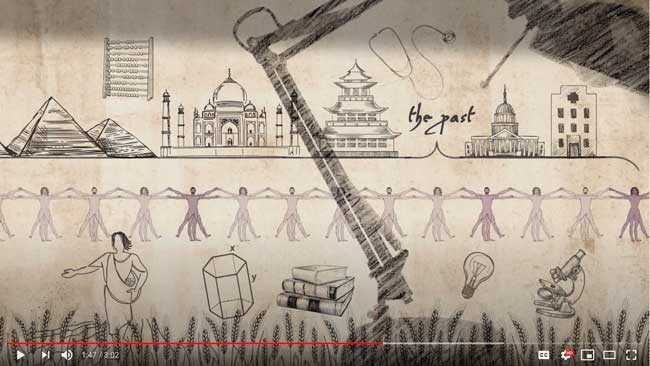Excerpts from explanations in the illustrated calendar 2017 distributed by the Adivasi Munnetra Sangam (AMS) in Gudalur

FRA Forest Rights Act
Our forests are ours again. In 2006, the government finally accepted the historical injustice meted out to Adivasis and passed the Forest Rights Act thus recognizing our rights to forests. AMS is working hard to ensure that this Act is implemented.
7. Ecoscape
Economic Empowerment: using tourism as a means to achieve our quest for economic empowerment, we financed, part built and are running an eco-guest house to raise funds for the work happening here in Gudalur.
8. Culture
Though nearly all our children now go to school, they do not learn about our culture, history and traditions. At Vidyodaya School, learning about our Adivasi culture is part of the curriculum.
9. Herbal Medicine
Adivasis are known for their knowledge of herbal medicine. But this knowledge is in danger of being lost. AMS has started a campaign to ensure this knowledge is passed on to our children.
10. Gardens for Health, 12 Adivasi kappi [coffee] society: A collective effort with AMS by linking the customer directly with the Organic Adivasi growing villages.
11. Kaavu (Sacred Grove)
Our kaavus (sacred grounds) are central to our culture. But many have been encroached upon and disappeared. AMS has done a survey of all Kaavus and burial grounds and is petitioning the government to officially recognize them.
Source: courtesy Vidyodaya team © 2017 | For a printed copy of this calendar, please contact the Vidyodaya Team <vbvtgudalur@gmail.com>
Though ASHWINI as an independent organisation was started only in 1990, its genesis dates back to 1986 when Stan Thekaekara and his wife, Mari started ACCORD, a Non-Governmental Organisation in Gudalur. Their main objective was to to fight against the unjust alienation of the adivasi lands and other human rights violations by organising them as a strong group.
They facilitated the formation of village level sangams and these sangams enabled the adivasi families to prevent any of their land getting encroached by powerful non-tribals of that area or by the Government authorities. More than 200 such village sangams had been formed within two years. These sangams were federated at the taluk level into “Adivasi Munnetra Sangam” which till today remains the representative organisation of the adivasis, fighting for their just rights and striving for the socio-economic development of the adivasi community. […]
Today, the Adivasi Hospital is one of the most sought after hospital in the Gudalur valley, not only by the tribals but also by the non-tribals of the local area. Patients are brought from distant villages by ambulance and good quality care is given. As all the staff are from the community and can talk the tribal languages, the tribal patients feel at home. Efforts were constantly made to keep the place culturally acceptable to them and the community gradually adjusted to the change. […]
All the members of the Executive Committee are adivasis. Thus, though ASHWINI is legally an independent identity, it continues to function under the umbrella of the AMS as an institution owned and managed by the adivasis themselves for their own development. […]
Source: History – Ashwini
Address: http://www.ashwini.org/index.php/ashwini/history.html
Date Visited: Sat Mar 18 2017 11:18:17 GMT+0100 (CET)

Learn more about the Kaani community >>
United Nations on climate change >>
[Bold typeface added above for emphasis]

Watch “The Good Ancestor – The Legacies We Leave” (3 min.): An animation that explores the legacies we might leave for future generations >>
Links to some of the most important organisations, thinkers and doers that are leading the way and that have inspired the book The Good Ancestor by Roman Krznaric >>